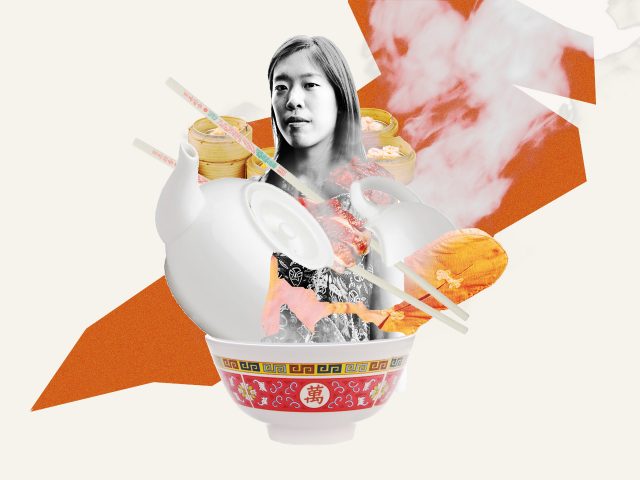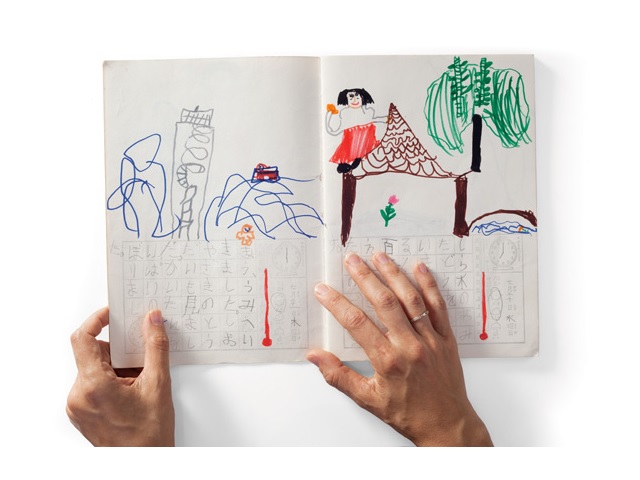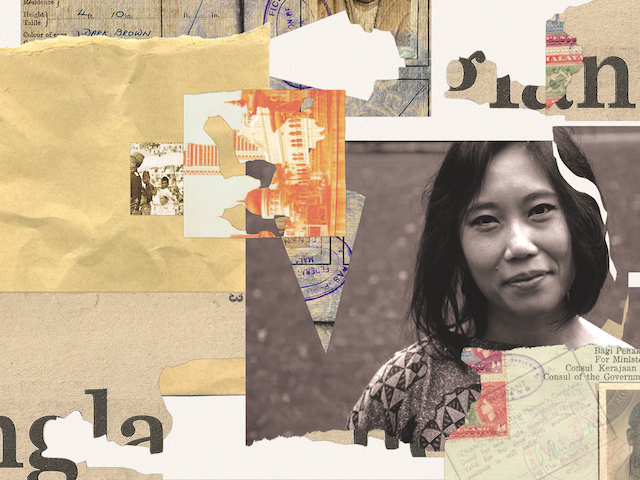Lillian Li talks about immigrant sacrifice, humor, learning from Asian American literature, and her debut novel, Number One Chinese Restaurant.

June 20, 2018
In her darkly hilarious debut novel Number One Chinese Restaurant, Lillian Li thrusts readers into the behind-the-scenes chaos of the Beijing Duck House from the very first page. Jimmy and Johnny Han, brothers who jointly own the restaurant, grapple with drastically different visions for their future. Nan and Ah-Jack, both longtime employees, contend with their aging bodies, their loyalties to their workplace, and their romantic feelings for each other. Annie, Johnny’s college-aged daughter, and Pat, Nan’s aimless son, find themselves caught in a summer tryst that puts everyone at the restaurant in danger. As the plot expands and more characters enter the narrative, Lillian deftly carries the reader along by using the restaurant as a grounding mechanism.
Lillian explores complicated families (including a threatening uncle with a penchant for drama), love, the difficult dynamics between immigrant parents and their American-born children, money, greed, and more. She has the unique ability to make you laugh on one page and want to cry on the next. By writing with warmth about characters in the margins, Lillian plays with and resists the common tropes of immigrant literature, forcing us all to expand our understanding of the world.
Lillian and I chatted online about what inspired her to write this novel, how humor sustains her in writing and life, the ambiguities within parental sacrifice, Asian American literature, and more over the course of two weeks.
—Crystal Hana Kim
You can see Lillian Li read from the novel, along with Rohan Kamicheril, Naben Ruthnum, and Ligaya Mishan at our space tonight for our event, From Plate to Page: Writing Asian American Food.
Crystal Hana Kim
I first wanted to talk about the premise of your novel because I was impressed with how you pack so much in without overwhelming your reader. There are many characters—Jimmy, Johnny, Nan, Ah-Jack, Pat, Annie, Uncle Pang, Janine—and they have complex, interwoven relationships with one another. And yet, I think it’s easy to keep track of them because the Beijing Duck House grounds the reader. The restaurant is the center of the novel, and it’s the center of these characters’ lives. How did you come up with this premise?
Lillian Li
I actually worked very briefly in a Chinese restaurant the summer before I wrote this novel. However, while I was working there, I had no intention of writing a novel about the experience. I was mainly overwhelmed by the job itself, how physically and emotionally punishing it was. I was even writing a totally different novel at the time! I would carve out an hour or two at the Panera across the street between lunch and dinner service, and write about two families that keep running into each other at the beach… Kind of the polar opposite of a Chinese restaurant.
Really though, it took quitting the job for the premise to come about. I lasted less than a month. Feeling like a supreme weakling, I endeavored to forget all about it, moved to Michigan, started my MFA, and continued to write my aimless beach novel. But the experience followed me. Long after the physical ache left my fingers and feet and knees, I still felt the emotional ache, the residual loneliness and alienation of serving people six days a week, twelve hours a day, people who looked right through me. People who didn’t seem to register that I was a human being, just like them. I couldn’t imagine anyone working in that environment for longer than a month, and yet all my co-waiters had been there for years, some for decades. They’d found a way to cope, and even thrive, to build a life inside the restaurant. But I also knew that they had each given up important parts of themselves in the process. I started writing the novel in order to understand what might allow a person to stay in that suffocating, but also sustaining space, and how that person might be changed.
CHK
I thought you might have had experience working in a restaurant because the physical and emotional landscape of the Beijing Duck House is written so vividly! You did a wonderful job portraying what your characters had to give up, what makes them stay, and what binds them together as a makeshift family. I especially saw the sacrifice in the relationships between parents and children, whether between Johnny and his daughter Annie, or between Nan and her son Pat. Was this an important theme you knew you wanted to explore or did these relationships develop naturally as you wrote?
LL
I definitely wanted to explore that theme of parental sacrifice—what immigrant daughter wouldn’t! With this book, I think I was pushing gently back on how the media and literature like to portray acts of parental sacrifice as totally good-hearted and pure, especially if the parents are immigrants. But I think the people in those relationships are a lot more complicated than that, which means the relationships and the sacrifices they make are equally complex. I wanted to explore how the intentions of the person making that sacrifice can be both selfless and self-interested. How sacrifice can be a way of hiding, a way of giving into fear, a way of escaping accountability at the same time that it is a testament to personal strength, courage, and resilience.
But also, I recently told my creative writing students that theme is more a reader’s word than a writer’s. When I write, I have no idea what a theme is. (I actually had a conversation with an early reader about my first draft where I kept asking, “Is this a theme?” and the answer was always no.) In this way, I think the relationships developed naturally as I wrote, and it was only in the late-revision process that I noticed a pattern was forming.
CHK
I love that you’re trying to complicate the clichéd “immigrant parent sacrifice” narrative. We’re all selfish, giving, self-interested, and selfless at turns. Another way that you upend the traditional “working immigrant” narrative is through your humor. There’s a lot of physical comedy (that scene where Ah-Jack drops the plate of lamb on Uncle Pang’s table early on in the novel cracked me up) and the hijinks happening in the restaurant kitchen kept me laughing my way through the book. I loved how Pat and Annie were caught having sex in the storage closet:“Right over the hoisin barrel.” Even the title has a light-hearted tone to it. How does humor function for you as a writer?
LL
On the surface, I think humor functions as another way to observe, record, and react to the world around us. It’s a way of looking at something differently and making something appear new to yourself and your reader. However, this means that humor can also be a way to distance the reader from the world you’ve written. Humor lets us to look more closely at something that might otherwise horrify us into looking away. This means, as a writer, I can use humor to keep a reader (and myself) from thinking my book is too depressing and abandoning it. At the same time, I want to be careful about humor’s distancing function—too much humor, in writing and in living, makes a grim situation bearable, but also makes us more resigned to accepting the grimness we might otherwise try to change. I’m trying to find the right balance, the right distance, that won’t distort, exaggerate, or minimize the world I’m attempting to capture.
CHK
There are instances throughout where the humor made me consider a character or situation differently. Nan is described as someone who “had a personality that did not inspire people to be better but persuaded them to be comfortable at their worst.” The dark humor here tilts the reader’s perspective, highlighting what could be a negative trait into something more intriguing and palatable.
You mentioned that humor also helps you from abandoning your writing. Can you tell us more about that? Were there moments when writing this book where you felt this way?
LL
I count myself very fortunate that there were no real rock bottoms with this book. I definitely had moments where I thought that if I didn’t learn everything about, say, how to open a new restaurant that I couldn’t go on writing the novel, before realizing the reader wasn’t any more interested in that minutiae than I was. What I want to believe is that I reached a point where the characters felt so real that to abandon them would have been tremendously heartless of me. But ultimately, I was just lucky!
Did you have moments where you wanted to jump ship?
CHK
I think I was also lucky; though my book, If You Leave Me, changed shape throughout the writing process, I didn’t ever want to abandon it. I cared about my characters too much, like you did with yours. I did, however, feel hesitant to get on the ship, if you know what I mean. Meaning, I didn’t know if someone like me could even be a writer in America. I didn’t read much Asian American literature growing up—not because I didn’t want to but because I didn’t know where to find these authors. Without that representation, I didn’t know if my dream of being a writer was possible. What about you? Did you read Asian American literature growing up?
LL
Oh my god, your question just unlocked a memory of a beloved book I read and reread so many times growing up! Have you heard of Year of Impossible Goodbyes by Sook Nyul Choi? It’s a young adult novel about a ten-year-old North Korean girl and her family living during 1945 Japanese-occupied Korea. I found it by random, just browsing the shelves of my library. What I remember most about that book was that I couldn’t quite understand why I loved it so much. I think that as soon as I finished it, I started reading it again. I had such a strong reaction to reading it (even stronger than when I read Joy Luck Club, another foundational book, a few years later). Sookan’s family dynamic, the values they share, and the way they showed their love for each other was instantly recognizable. Even though the characters were from a different era and Korean instead of Chinese, I felt, as a kid, like this book was written to help me understand my world and my family more intimately.
I felt singled out by this book in a way that I am still so grateful for. I think when readers say they want to see themselves in books, it’s not as simple as wanting to see characters who look like them. To want to see yourself in a book is also to want to feel seen by the book itself, to feel that the book was written with you in mind. Choi’s book did that for me, and I think that feeling of communion is now elemental to what I hope to do with my writing.
CHK
I haven’t heard of this book, but damn, I wish I had read it when I was a child. It sounds exactly like the book I was desperately seeking. I completely agree with you that representation goes beyond characters that look like you to “feeling seen by the book itself.” We’re at a really exciting place with Asian American literature. There are so many different voices, genres, and types of books being published, which go beyond the expected narratives—we’re pushing into new literary territories.
Who are some of your favorite Asian and Asian American writers?
LL
I have so many! I’ll have to limit my list to the writers that have taught me lessons in my own writing. I love Ruth Ozeki, for showing me the inherent magic of fiction and when to bend the rules of reality that I too rigidly follow. I love Sigrid Nunez for the tremendous feat of balancing emotional density on top of sentences that seem like they would be too delicate and spare to handle the weight. Jessica Hagedorn, for teaching me how to invent and mimic the inner workings of the dominant culture to reveal its pervasiveness and perversity. Peter Ho Davies for pairing the boldest concepts with a light, even tender touch. Chang-rae Lee has the ultimate unreliable narrators, made unreliable not only by their nature and the nature of their story, but also by the world’s own unreliability when it comes to the treatment of Othered people. And okay, one more, Ocean Vuong, for the duality of his poetry, which shows me how to hold two, three, ten contradictory ideas and feelings in my head, in my heart, and in my work.



